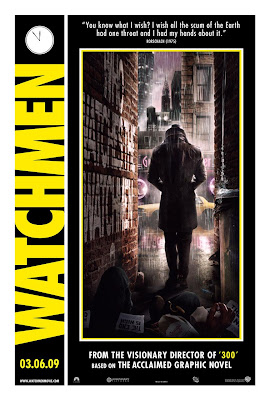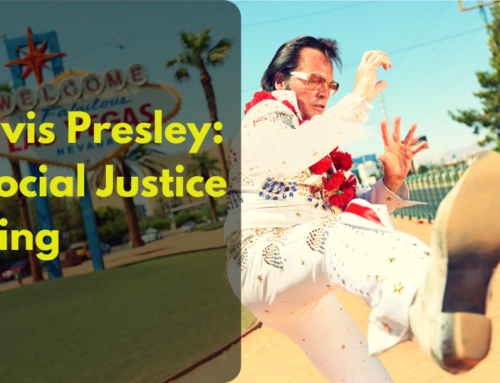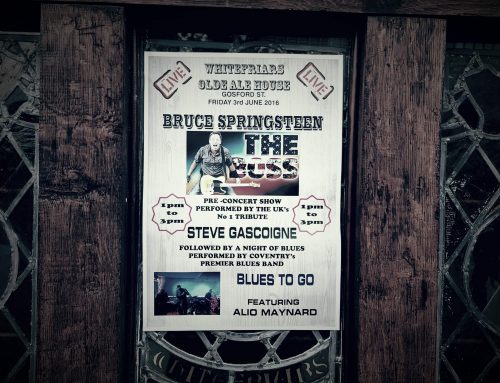With the hype machine for next year’s Watchmen film already powering up (it was the cover story to last month’s Empire and the trailer is attached to Dark Knight, that bat-themed vigilante flick that’s currently doing the rounds), it’s only a matter of time before non-comics literate friends and affiliates start asking me: “What’s it all about, fanboy?”
Sadly, I’m no better equipped at providing a straightforward, snappy and easily digestible answer than I was when other friends and other affiliates were asking another me exactly the same question over twenty years’ ago. It’s just as well, then, that there are people out there prepared to do the hard work for me. Tom Spurgeon asked his Comics Reporter readers to define Watchmen to the uninitiated. I quite liked Cole Moore Odell’s take on the book:
“Watchmen is about power: its trappings, its limits, and the consequences of its use. We see the USA and Russia as global superpowers; Dr. Manhattan with the literal power of a god; the power that normal people have to affect both individual lives and the course of history, and the power of writing to shape thinking. It is also about powerlessness — as embodied by the child who would become Rorschach, or the inexorable slide toward war — and the self-deception practiced by people (Ozymandias in particular, but all of them) struggling against that helplessness. It’s only about superheroes to the extent that the genre allows Moore and Gibbons a multitude of ways to explore the theme.”
I’m also quite partial to Matthias Wivel’s explanation:
“Watchmen is about a lot of things, many of which have been brought up in your round-up, but fundamentally it is about what all Alan Moore’s comics are about: Order. The sense that there is a structure to the universe, and to existence, and how this structure starts in ourselves and determines our perception of the world. Moore exemplifies this in the meticulous structure of the comic itself, but also in the character of Dr. Manhattan who perceives the order we can only intuit.
“The conflict of the story arises from the way the individual deals with it, and the main characters each make their own choices: The Comedian absolves himself and becomes amoral, Ozymandias wants to control it, Rorschach has lost faith in it, Dan and Julie chose to make their way within it, and Dr. Manhattan stands back. The play’s the thing.”
But the award for the most straightforward, snappy and easily digestible answer goes to Dustin Harbin:
“Watchmen starts out as a superhero murder mystery and turns into a really dense rumination on the motivations behind might and right.”
It doesn’t provide a full explanation as to why this book is still considered so important by people like me, but it’ll be a damn sight easier for me to remember.
Thanks to Pete for the heads-up.









Leave A Comment